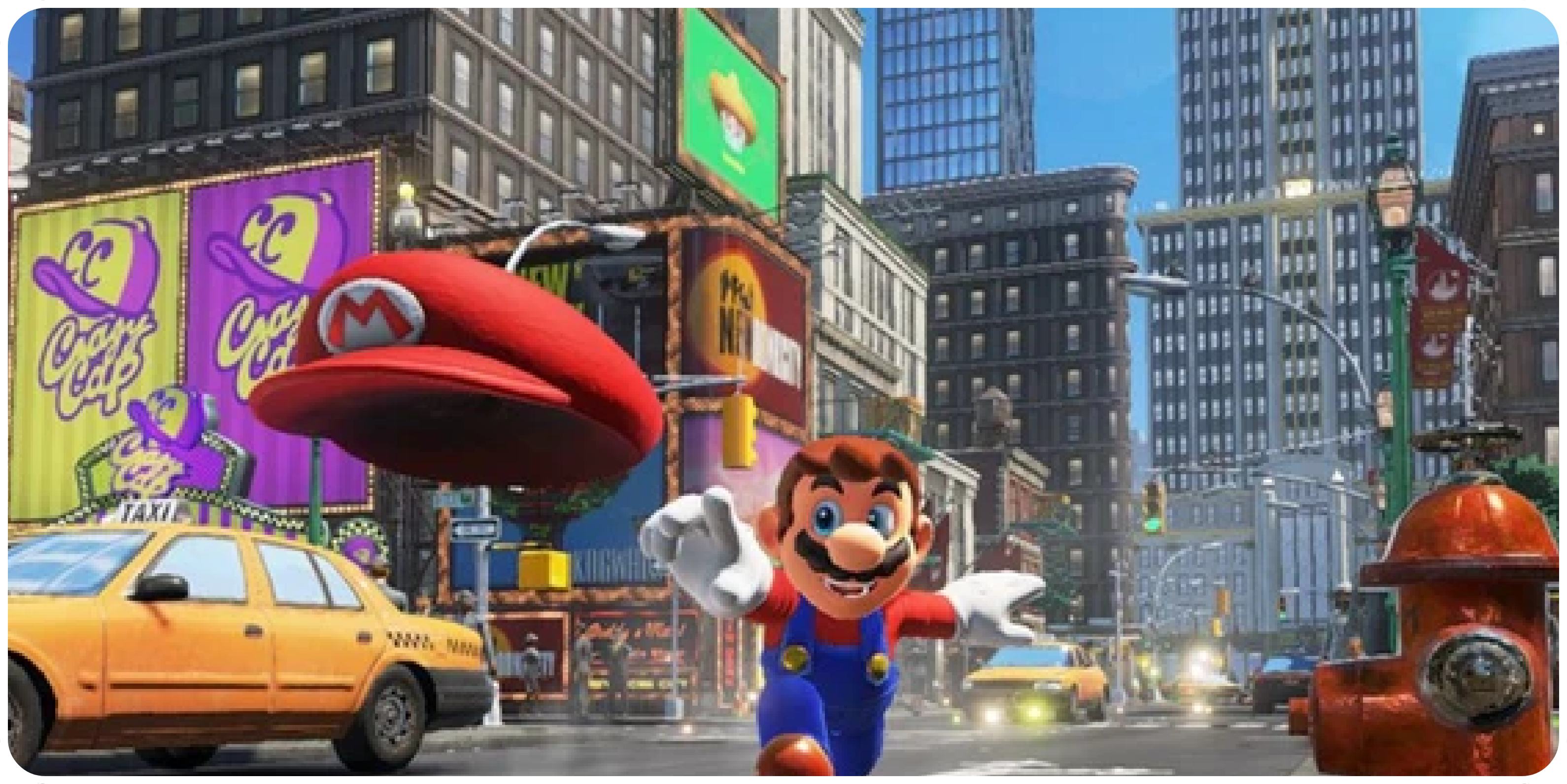
While we designers rarely ignore the mechanics based aspects of what makes our games fun and addictive (aspiration, progression, balance, storytelling etc.) there's one simple rule that I've seen ignored time and again, and indeed have been guilty of ignoring myself.
This one simple principle seems to be a common thread running through every successful (and especially addictive) blockbuster game ever made.
Here it is :
The action that your player performs most frequently should feel like fun all by itself.
To elaborate - the one (or two) things that the player repeatedly does while playing your game should feel juicy, satisfying and fun enough so that just simply performing this action hundreds of times even without any additional context should not become boring.
Let's test this hypothesis by looking at some blockbuster games across genres :
Super Mario Series - running and jumping
The famously solid and weighty physics behind Mario's basic run and jump make controlling him extremely pleasurable. Just running and jumping around a level with Mario, even without any enemies or obstacles would still be pretty fun.
Diablo - clicking on an enemy
The famously visceral feeling you got when attacking a monster in Diablo - the hugely satisfying crunching, squishing and cutting sounds followed by great death animations - meant that you could just click on enemies all day, making it one of the most addictive games in history.
Candy Crush Saga - matching candies
Love it or hate it - there's no denying that Candy Crush exploded in audio-visual delight every time you made a combo. Every sound and animation is just perfect, and they string together beautifully so that making a series of long combos is a hypnotic experience - regardless of the score, progression and other gameplay mechanics.
Halo - shooting
Halo (or any other top FPS) gets the shooting right. The simple act of firing any of its guns feels solid, punchy and satisfying - the sound, the recoil animation, the overheat animation, the needler trails, all work together to make just shooting a gun a fun experience by itself, even if there are no enemies at the other end.

Animal Crossing - Chopping Wood, Fishing, Catching Bugs
The satisfying feedback (audio and visual) to the repetitive core actions in Animal Crossing: New Horizons go a long way towards making the game so addictive. When you have to repeat an action hundreds of times in a session, it better feel good. In contrast, the crafting action doesn't feel quite as good, and therefore feels far more like a chore.
Angry Birds - launching a bird
Like Super Mario Bros, this one is also all about physics. The superb sense of weight when you catapult different kinds of birds to their doom, with the hilariously perfect sounds, lead to an experience that never gets old, however ,many hundreds of times you repeat it.

Minecraft - digging and placing blocks
The satisfying whack-plink-thunk sounds when you dig through different kinds of terrain in Minecraft, and the comforting thud when you place a block down make the basic actions of the game feel fun and enjoyable. So hours and hours of carving out the terrain and building stuff doesn't feel like a chore - in fact, quite the opposite. It's an addictive, almost meditative experience.
Hmmmmmm. Most suspicious, yes? The truth seems to be, regardless of genre, that the most successful games make the core action as much fun as it can be. So much that, when you're in the thick of the game, it becomes a trance-like, meditative experience.
I actually learned this the hard way at Zynga when we shipped Hidden Shadows. While we focused heavily on making the hidden objects scenes look great, writing interesting stories, tuning the economy to feel right and suchlike, we dropped the ball on one important thing. In our game (like in many Facebook games), the action that the player performed most frequently was in fact clicking on buttons (in the quests, the game's various menus and dialogs and so on). We failed to make the button-clicking a delightful experience - and this made the game, in hindsight, less addictive. My gut still tells me that a better level of UI polish would have made Hidden Shadows a vastly more successful game than it ended up being. Games like Candy Crush Saga and Farmville 2 get it right - and are more addictive experiences as a result.
To anyone making games today, I cannot stress this enough - isolate the core action of your game, and polish the crap out of it until it feels like fun on its own. Test prototypes that have just the core action and absolutely no other systems built around it - and iterate until these feel enjoyable to play around with. Your game will be better for it.
